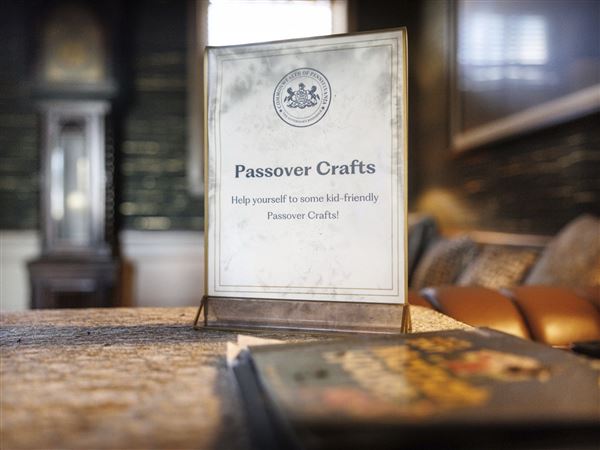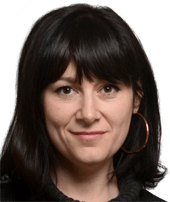Some years ago, at a breakfast thrown by the University of Pittsburgh Swanson School of Engineering, Rita Baranwal was asked about a challenge she’s encountered in her accomplished career as a materials engineer.
At that point, she was the head of Westinghouse Electric Co.’s research and development activities and a well-respected name in the nuclear industry.
The way Tom Congedo, who had that post before her at Westinghouse, remembers it, Ms. Baranwal chose to talk about what it’s like to disagree with the consensus.
It’s important not to mince words, she said, and to be prepared, Mr. Congedo recalled.
“When I go to those meetings, I bring my car keys with me,” he recalled Ms. Baranwal saying.
When Mr. Congedo heard that Ms. Baranwal was nominated to the top nuclear post at the U.S. Department of Energy, he and his colleagues at the University of Pittsburgh were delightfully shocked.
“[She’s] smart as hell and made from steel,” he gushed earlier this month. “I wouldn’t be surprised if [President Donald] Trump met her and said, ‘This one’s got kishkas.’”
Ms. Baranwal, who lives in Hampton Township with her husband and two teenage kids, is also a diplomat — a trait that was on display on Thursday when she faced the Senate Energy and Natural Resources committee during an hours-long confirmation hearing.
Does she have an opinion about storing the nation’s nuclear waste at Nevada’s Yucca Mountain?
Ms. Baranwal vowed to study the issue.
Should local communities be consulted?
“Those voices should absolutely be heard.”
Would she commit to visiting Yucca Mountain to listen to “both sides?”
“Should I be confirmed, I very much look forward to visiting Yucca Mountain,” Ms. Baranwal said.
Before the hearing was over, she had also committed to visiting a discontinued enrichment technology project in Ohio, exploring ways to get small nuclear reactors to power mining operations, and scrutinizing the United States’ nuclear technology exports to China.
Ms. Baranwal was born in Akron, Ohio, to Indian-American immigrants. She grew up curious and energetic and was considering fashion design when applying to college.
But when she got a chance to look through a scanning electron microscope, she was hooked. Her dissertation was on nanoparticles before, as she told the committee, they were a “buzzword.”
She got her doctorate from the University of Michigan and worked on naval reactors at Bechtel Bettis before joining Cranberry-based Westinghouse in 2007. In 2016, she was tapped to lead Idaho National Lab’s Gateway for Accelerated Innovation in Nuclear, or GAIN.
The Department of Energy initiative was the agency’s way of reaching out to the industry and using the national labs to help commercialize advanced nuclear technologies. Ms. Baranwal has described it as somewhat of a matchmaking service: The labs have the equipment and expertise, and companies have problems to solve in need of that equipment and expertise.
“Since 2016, GAIN has positively impacted 112 companies,” Ms. Baranwal told the Senate committee.
Ms. Baranwal is, obviously, an adamant advocate for nuclear energy. She picks her reasons carefully.
When she was manager of materials and fuel rod design with Westinghouse in South Carolina, Ms. Baranwal said she was trained to lead her discussions with jobs and tax revenue.
For years after that, the pitch was about nuclear’s clean carbon footprint and its role in fighting climate change.
Now, in Washington and at industry conferences, Ms. Baranwal talks about national security — how keeping the U.S. nuclear industry vibrant keeps the country in the know and in control of how nuclear technology spreads around the globe.
She also talks about miniaturizing nuclear power.
The trend toward smaller plants — with smaller budgets and smaller risk and smaller profiles, all in contrast to Westinghouse’s much delayed and troubled debut of its AP1000 large reactors — appears to be popular in struggling industries.
The DOE undersecretary for fossil fuels and former Consol Energy executive Steve Winberg, is telling the same story about coal plants: that the existing fleet should be preserved and modernized and that the next generation of plants will be small and modular.
It’s unclear when some of the advanced nuclear technologies will be commercialized, but John Kotek, now a vice president at the trade organization Nuclear Energy Institute and a former assistant secretary for nuclear energy, said the money being poured into these innovations is “unlike anything I’ve seen in decades.”
Mr. Kotek thinks putting Ms. Baranwal in charge of the nation’s nuclear research and development priorities is an “absolutely perfect transition.”
Ms. Baranwal’s diplomacy isn’t about being overly cautious or avoiding substance. It’s about tact.
When she was asked during her first trip to the White House about who she voted for in the 2016 election, she said it wasn’t for Mr. Trump.
She has retweeted articles critical of the president for pulling the U.S. out of the Paris Agreement, which committed the world’s nations to fighting climate change.
In May, she urged U.S. Rep. Keith Rothfus to support legislation favorable to proceeding with Yucca Mountain as a spent fuel repository.
“If it’s found to be scientifically safe, we need to do it,” she said in an interview with the Post-Gazette last month. “I’m a proponent of it.”
She’s called the nuclear industry “stodgy” and said the attitude is “starting to hinder our progress” during a podcast called Titans of Nuclear.
In mid-October, a few weeks after the Saudi-born journalist and dissident Jamal Khashoggi was murdered inside a Saudi Embassy in Turkey, Ms. Baranwal considered what she might say if, as DOE undersecretary, she were asked whether the U.S. should continue negotiating with the Saudis over agreements that would allow Westinghouse to build nuclear reactors there.
“That needs to be scrutinized,” she said after a pause and a cringe. “But we need to be at that table.”
Ms. Baranwal’s take on the potential to reuse spent fuel was more definitive: “The technology is out there. It’s purely political. Ninety-five percent of the fuel can still be reused.”
It’s not known yet when the Senate committee plans to vote on Ms. Baranwal’s nomination.
Anya Litvak: alitvak@post-gazette.com or 412-263-1455.
First Published: November 19, 2018, 2:30 p.m.
















